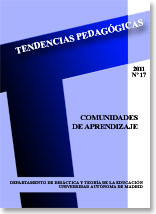Keywords:
Creation, project, construction of knowledge, pedagogic strategy.Abstract
Inside a dynamic world, the pedagogic trends must accompany these transformations, noticing the importance of the implementation of metacognitive activities and of integration ones, as the education across the creation and auto-management of projects. The new of this methodology is that the content to teaching is a resource to formulate problems that would stimulate the reconstruction of the ideas, the perceptions and the attitudes of the students. In this way the apprentices acquire aptitude to take part in new experiences which lead them to a process of exchange and production of meanings, whereas the teachers could integrate their own activity, by means of a transparent autoevaluation.Downloads
References
Camilloni, Alicia; Cols, Estela; Basabe, Laura y Feeney Silvia (2007). El saber didáctico. Colección: Cuestiones de educación. Buenos Aires: Editorial Paidós.
Celman, Susana (2000). La construcción de la autonomía docente entre guardianes, técnicos y expertos. Novedades Educativas, 114, 81-96.
Daros, William (2001). Filosofía de una teoría curricular. Rosario: Universidad del Centro Educativo Latinoamericano. Disponible en internet: //http:
www.williamdaros.wordpress.com// [Consulta: mayo 2010].
Jackson, Phipilp (1999). Enseñanzas implícitas. Buenos Aires: Editorial Amorrortu.
Gento Palacios, Samuel (1998). Marco referencial para la evaluación de un proyecto educativo. Educación XXI, 1, 93-129.
Litwin, Edith (2003). Las nuevas tecnologías y las prácticas de la enseñanza en la universidad. Revista del Instituto de Investigaciones en Ciencias de la Educación, 19, 22-26.
Lombardo Claudia (2005). El aprendizaje basado en problemas: en busca del sentido perdido. Quehacer Educativo,74, 24-28.
Plante, Jacques (1994). Evaluation du Programme. Canadá: Université Laval.
Wassermann, Selman (1999). El estudio de casos como método de enseñanza. Colección Agenda Educativa. Buenos Aires: Editorial Amorrortu.
